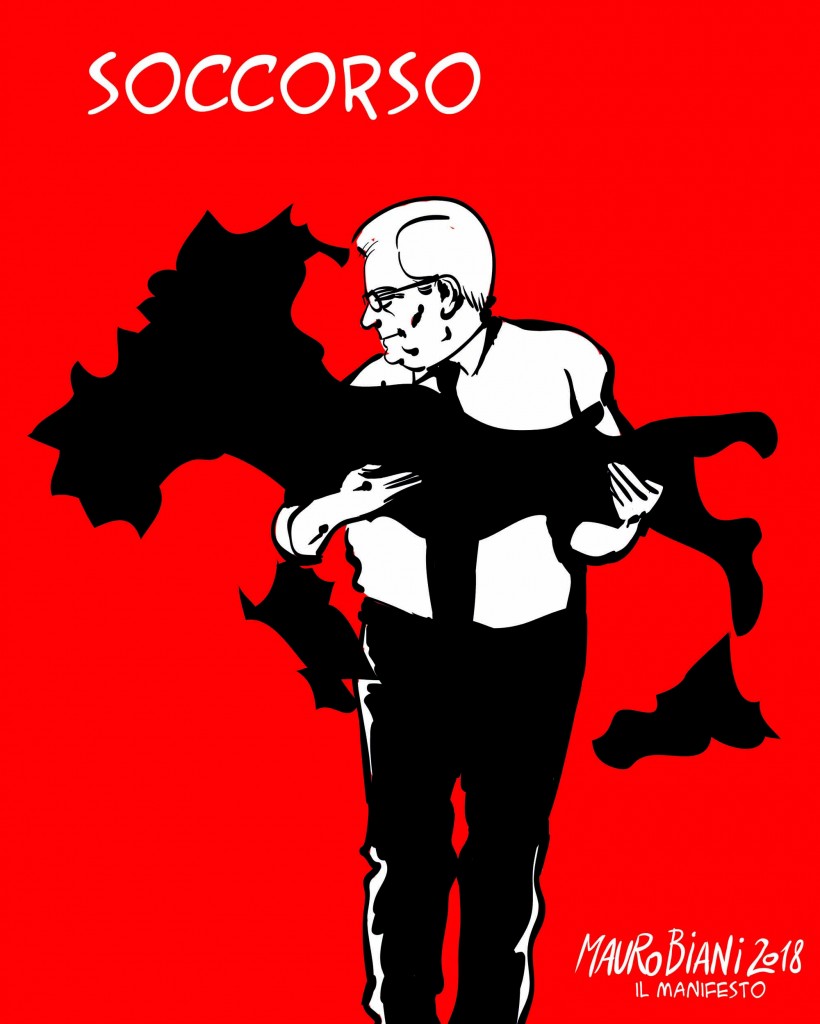Letter
The president’s silence, our solitude
Three regions could deal a deathblow to the Constitution, and unravel the unified order of the State, while ordinary citizens would remain both completely misinformed and powerless to stop it.

Dear President Mattarella,
I hope you will not find my act of sending you this open letter to be too irreverent and disrespectful of formalities. I could have called on weighty public figures to add their signatures in support of what I am about to write, to dilute the apparent personal character of my words. I chose not to do that—not because I don’t believe official public appeals to the President are effective—democracy thrives on formal procedures, especially when it is working properly—but because I would like to take up the role of an individual citizen, both literally and symbolically, and take sole responsibility for what I am writing.
I’ve been following what has been happening in my country for half a century, both as an active observer of the daily political dynamics and as a historian of the contemporary age.
Thus, I believe I can say with extraordinary confidence that we are now seeing a campaign of open subversion of the Italian Republic to such a degree as has never taken place before: a subversion that has been quietly pushed forward for months by the political forces promoting it, given the general disinformation of the public, the lack of reaction from the parties, the silence of almost all of the mainstream press and the total disregard of the issue by the public television.
That act of subversion is none other than the draft law regarding the so-called “differentiated autonomy,” concerning the regions of Veneto, Lombardy and Emilia, which was officially taken up for debate in the Council of Ministers on Feb. 14. It is a project aimed at the dismantling of national unity, an attempt to secure the inequitable redistribution of public funds to the aforementioned three regions and the granting of extraordinary powers to these same regions in 23 different matters.
I will not get into the minutiae of the formal plausibility—or lack thereof—of the juridical construct being employed and about its subversive character, albeit cleverly disguised as part of the normal process of strengthening administrative autonomy. Scholars in this field, possessing much greater expertise than I have, have already made this case, both in this newspaper and in other print media. Furthermore, as the issue is being taken up for discussion in the Council of Ministers, even the national media have let it slip into their daily news broadcasts, whenever the topic lent itself well to the facile journalistic gossip about the difficulties and conflicts that the draft law was causing within the government and among the political parties.
This low level of information on the issue was destined to be too little and too late. Although at this point it has gained crucial importance, it would have been entirely to no avail if the legislative process hadn’t become temporarily stuck in its tracks.
This, indeed, is another troubling aspect of this semi-clandestine operation to achieve the effective secession of the Po river region, disguised as mere bureaucratic routine: namely, the very fact that it could actually be achieved—thanks to a provision set out by the reform of Title V of the Constitution—without any parliamentary debate, through the complete marginalization of the legislature, which is after all, meant to represent the will of the Italian people.
It seems that three regions could deal a deathblow to the Constitution, and unravel the unified order of the State, while ordinary citizens would remain both completely misinformed and powerless to stop it.
Therefore, I must ask, Mr. President: how is it possible to have such an alarming flaw in the Constitutional order? I must point out that this subversive plan was denounced—a fact that contributed significantly to it being temporarily stopped in its tracks—by only a few scholars, who for months labored with the utmost effort in the most discouraging isolation.
It was Matteo Renzi and his government who first started to mock these intellectuals, mostly from academia, as “professoroni” [“big shot professors”], a move which is now part of the vernacular. Knowledge and expertise are being derided everywhere as “old” and bookish, to be replaced with the fresh and “popular” impudence of the politician who knows how to adapt to the particular circumstances.
But how was all of this possible? Is it that our constitutional body and the architecture of our civil laws are so fragile that they must be shored up—in such a dangerous moment in our national life—by no one but a handful of private citizens?
It is thus, Mr. President, that we find ourselves at a sensitive juncture in our history, which may decide whether our national community will have a unified future, or rather one of disintegration into a patchwork of regional statelets, locked in perpetual conflict and struggle. And I cannot help but ask: what role can we still claim to have in Europe if a large part of our own country—the South—will be institutionally marginalized in economic and social life?
Your office embodies the unity of Italy. I am aware of, and fully respect, the formal limits and the institutional obligations you are bound by. However, in such serious circumstances as these, can you really limit yourself to just the formal act of possibly refusing to sign this law?
Can you still remain silent, Mr. President, while Italy is faced with such a serious danger, whose outcome will inevitably weigh so heavily in our lives and in those of our children?
Piero Bevilacqua is an Italian historian and essayist.
Originally published at https://ilmanifesto.it/caro-presidente-il-suo-silenzio-la-nostra-solitudine/ on 2019-02-22
